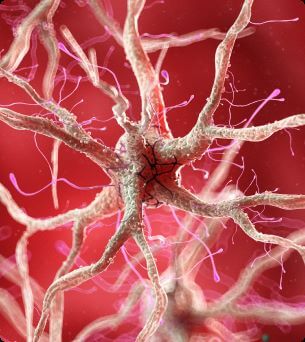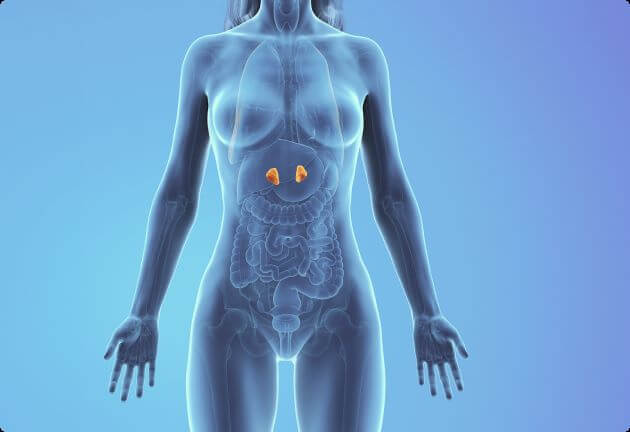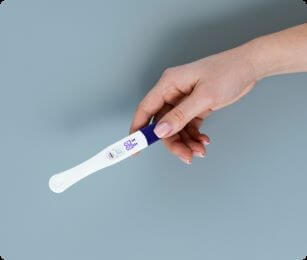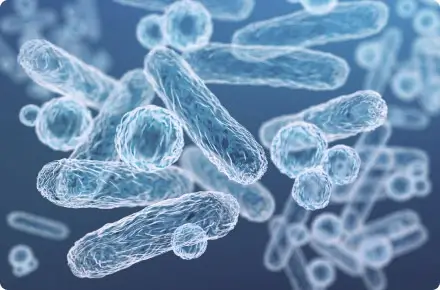Hormonal imbalance, a term encountered everywhere nowadays. Blogs and books discuss it, and social media bombards you with hormone tips. Diets and supplements are marketed to restore hormonal balance. Is this justified? What does it mean when your hormones are imbalanced? What are the symptoms and signs of hormonal imbalance? And, more importantly, what can you do to restore hormonal balance? Read on to uncover the truth behind this vague health condition!


What is hormonal imbalance?
Before delving into the explanation of hormonal imbalance, it’s essential to understand the nature of hormones.
Hormones act as chemical messengers in our body, traversing through the bloodstream to various parts to perform their functions. With around fifty different types, hormones play diverse and vital roles, such as regulating digestion, maintaining stable blood sugar levels, facilitating growth, metabolism, and reproduction. These chemical messengers are produced by the so-called ‘endocrine organs’—the pituitary gland and hypothalamus in the brain, as well as the thyroid, reproductive organs, digestive organs, and adrenal glands. The intricate balance and proper functioning of these hormones are crucial for both physical and mental well-being. Disruption in one hormone can lead to imbalances in others, resulting in hormonal imbalance and giving rise to vague health complaints.
Hormonal imbalance essentially means that your hormone levels are not within the normal range. However, many hormones naturally fluctuate, like melatonin (regulating sleep/wake cycles), cortisol (the ‘stress hormone’ peaking in the morning to wake you up), reproductive hormones (related to the menstrual cycle), and digestive hormones responding to food intake. These hormones never maintain constant levels, fluctuating under the influence of circadian rhythms and lifestyle factors. Certain life stages, such as puberty, pregnancy, or menopause, also bring about changes in hormone levels, representing natural processes where hormones continuously vary to fulfill their specific functions.

However, when hormone levels in the blood deviate from the normal range and cause symptoms, it’s termed hormonal imbalance. This imbalance can lead to diseases like abnormal thyroid function or diabetes mellitus. Yet, hormonal imbalance can also manifest as less clear, vague complaints and symptoms, depending on the type of hormone imbalance and the extent of deficiency or excess. How do you know when your hormones are not in balance?
How to recognize hormonal imbalance?
Hormonal imbalance can manifest a wide array of complaints and symptoms. The body produces around fifty different hormones, each serving a distinct function. It’s important to note that certain complaints may stem from disruptions in hormonal balance, but they might not necessarily be caused by a hormone imbalance. Numerous other factors can also trigger the same symptoms. Therefore, always consult your personal physician if you experience any issues.
Below is a list of potential symptoms you might experience when your hormones are not in balance. Note that not all symptoms require immediate investigation or treatment. Lifestyle adjustments can often make a significant difference. However, if you experience severe symptoms or notice a significant change in your health, it’s advisable to consult your primary care physician before embarking on self-diagnosis or exploration.




Symptoms of hormonal imbalance:
- Fatigue: Fatigue may arise due to factors such as a deficiency in thyroid hormone. Additionally, cortisol, known as the stress hormone, influences our energy levels. However, fatigue is a general complaint that can be caused by various factors, and lifestyle factors are not always directly linked to hormonal imbalance.
- Altered Menstrual Cycle in Women: Hormonal imbalance, such as in Polycystic Ovary Syndrome (PCOS), can lead to changes in the menstrual cycle, including missed periods. Excessive vaginal bleeding may also signal hormonal imbalance in women.
- Reduced Fertility: Changes in sex hormones or conditions like PCOS can contribute to decreased fertility.
- Weight Changes: Hormonal imbalances in cortisol (the stress hormone), insulin (regulating blood sugar), and leptin (the satiety hormone) can lead to weight gain or loss.
- Mood Issues: Alterations in neurotransmitters like serotonin and dopamine, along with hormones such as estrogen, testosterone, and progesterone, can result in mood problems.
- Acne or Other Skin Problems: Male sex hormones affect sebum production, and an increased sebum production can lead to acne. Despite hormonal influence on acne, individuals with normal hormone levels may still experience it.
- Hair Issues: Reduced production of thyroid hormone can cause hair loss, while excess testosterone may lead to excessive hair growth.
- Changes in Libido: Fluctuations in estrogen and testosterone can result in a decreased libido. Men may also experience erectile issues.
- Digestive Problems: Various digestive issues may be caused by disruptions in different hormones, such as cortisol, insulin, and thyroid hormone.
- Sleep Problems: Disturbances in melatonin (the sleep hormone) and/or cortisol (the stress hormone) can contribute to sleep problems.
- Restlessness, Excessive Sweating, Heart Palpitations: These symptoms may occur with an overproduction of thyroid hormone or elevated levels of the stress hormone cortisol.

Causes of hormonal imbalance
An imbalance in hormones can arise from various factors. These factors can contribute to changes in the production, regulation, or effectiveness of hormones in the body, which, in turn, can lead to a disrupted hormonal balance. When one hormone is imbalanced, there is a possibility that another hormone may also be affected. Understanding these causes can help identify potential triggers for hormonal issues and contribute to treatments aimed at restoring hormonal balance. It is important to realize that the hormonal system is a highly complex physiological system, where often not a single cause can be pinpointed, but rather a complex interplay of various factors.



Possible causes of hormonal imbalance include:
- ifestyle factors: One of the primary causes of health issues and hormonal imbalance is an unhealthy lifestyle. To achieve a healthy hormone balance, it is necessary to have a varied and adequate diet, engage in daily exercise, quit smoking, moderate alcohol consumption, and ensure sufficient sleep. People with overweight more often experience hormonal imbalance symptoms.
- Age: The natural aging process can lead to changes in hormonal levels. Women go through menopause due to changes in hormonal balance, and men experience a natural decline in testosterone production as part of the aging process. Puberty and pregnancy also lead to hormonal changes and potential imbalance. These are healthy, natural processes that are part of good health but can cause the above-mentioned symptoms.
- Stress: Prolonged stress can disrupt hormone balance, especially cortisol (the stress hormone), affecting other hormones such as estrogen, testosterone, and thyroid hormones. Do you want to know if your testosterone and/or thyroid hormone levels are optimal? Or how high your cortisol levels are? Click the link and order the Easly test!
- Medication: Some medications can influence hormonal levels. The most well-known is hormonal birth control pills, which prevent ovulation by affecting hormones. However, (oral) corticosteroids and chemotherapy also affect hormone balance.
- Medical conditions: Conditions such as polycystic ovary syndrome (PCOS), thyroid disorders, diabetes, and other endocrine disorders can cause hormonal imbalance.
Related tests



How to address hormonal imbalance?
Addressing hormonal imbalance depends entirely on the type of hormone that is out of balance. When there is a clear deficiency in certain hormones, supplementation of that hormone may be prescribed by a doctor. However, if you experience symptoms of hormonal imbalance without a clear deficiency shown in blood tests, it is recommended to explore lifestyle changes to alleviate the symptoms. It’s essential to note that many hormones fluctuate throughout the day or month as part of good health. Therefore, measuring specific hormones at precisely the right time in the blood is crucial to avoid distorted results.
Maintaining a healthy lifestyle is also crucial in preventing hormonal imbalance. Which lifestyle factors contribute to a healthy hormonal balance?

- Healthy Weight: Individuals with a healthy weight experience fewer symptoms of hormonal imbalance. Overweight individuals often face more symptoms of conditions like PCOS, which may decrease with weight loss.
- Balanced Diet: A balanced diet includes an adequate intake of foods, vitamins, minerals, fiber, and sufficient healthy, unsaturated fats essential for hormonal health. Limiting processed foods and an excess of saturated fats is advisable.
- Regular Exercise: Regular physical activity regulates certain hormones and prevents insulin resistance.
- Stress Management: Chronic stress increases cortisol levels, leading to increased (abdominal) fat storage.
- Quit Smoking: Smoking negatively impacts hormone health.
- Follow Your Doctor’s Advice: For certain hormonal abnormalities, such as thyroid disorders or diabetes mellitus, hormone supplementation may be necessary. Always follow the personalized advice of your doctor.


Additionally, it’s crucial to note that there are many stories circulating on the internet and social media about hormonal imbalance. Many supplements or diets are promoted as solutions to restore this balance. However, a healthy lifestyle is absolutely essential for hormonal health and cannot be replaced by a supplement.
Conclusion
There are as many as fifty different hormones that perform various functions in the body every day. Hormones are indispensable for both mental and physical well-being.
When one hormone is not at the right level, it can lead to an imbalance in other hormones. This condition is known as hormonal imbalance. Hormonal imbalance can lead to diseases such as thyroid disorders or type 2 diabetes mellitus, as well as vague health issues like mood swings, fatigue, or changes in the menstrual cycle.



It is crucial to consult with your (family) doctor when experiencing these symptoms, as they can provide advice on whether these issues may be linked to a potential hormonal problem. On the internet and social media, there is a plethora of diets, supplements, and therapies purported to restore hormonal balance. However, these are not always scientifically grounded and can sometimes be harmful to your health. A healthy lifestyle forms the foundation for maintaining good hormonal balance.










